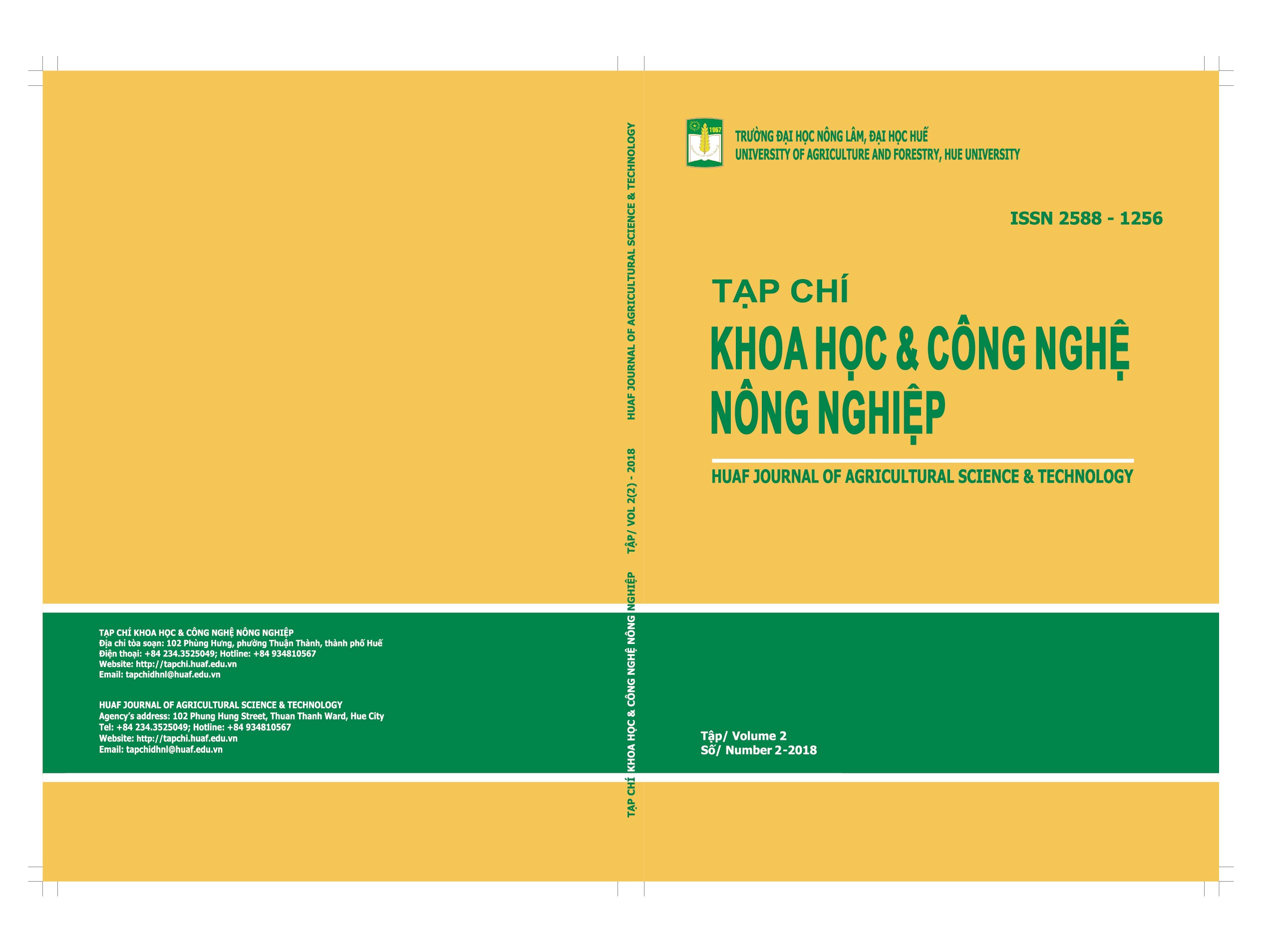##plugins.themes.huaf_theme.article.main##
Tóm tắt
Nghiên cứu này nhằm đánh giá thực trạng công tác đấu giá quyền sử dụng (QSD) đất của một số dự án trên địa bàn tỉnh Thừa Thiên Huế. Từ đó, đề xuất một số giải pháp góp phần nâng cao hiệu quả công tác đấu giá QSD đất tại địa bàn vùng nghiên cứu. Kết quả điều tra, phân tích, xử lý số liệu 4 dự án đấu giá QSD đất trong giai đoạn 2016 - 2017 cho thấy, phiên đấu giá đã đấu thành công 83/83 lô đất, chiếm tỷ lệ 100%; mức giá trúng đấu giá có xu hướng tăng từ 1,63 lần đến 2,27 lần so với mức giá khởi điểm; mức giá sau khi trúng đấu giá có sự khác biệt và chênh lệch giữa các lô và cụm lô. Bên cạnh những tác động tích cực, công tác đấu giá cũng tồn tại một số hạn chế như: trình tự thủ tục hành chính còn phức tạp; công tác quảng cáo của các dự án chưa hiệu quả; vẫn tồn tại tình trạng đầu cơ đất đai; tình trạng tự điều chỉnh quy hoạch và xây dựng không đúng quy hoạch; lấn, chiếm đất, làm giảm phần diện tích đất công cộng sau khi trúng đấu giá và còn tồn tại tình trạng thông thầu.
ABSTRACT
This study aims to assess the current situation of auctioning land use rights of some projects in Thua Thien Hue province, from that proposes the solutions to improve the effectiveness of auctioning land use rights in the study area. The survey results, analysis and data processing of 4 land use rights auction projects in the period 2016-2017 showed that the auction was successful 83/83 land plots, accounting for 100%; the winning prices of the land use right value auctions tends to increase from 1.63 times to 2.27 times the starting price; the winning prices of the land use right value auctions is different and the difference in land plots and blocks. In addition to the positive effects, the auction of land use rights also has some limitations, including: administrative procedures remain a big barrier to auction on land use rights; advertisement service of auction on land use rights of some project have not achieved high efficiency; the status of land speculation, individual investors buy houses and land not for the purpose of accommodation or rental but with the intention of quickly reselling them for profit; violating regulations on construction planning and land use plannings and/or plans already publicized; encroaching upon land, using land not for the right purposes; the investors held a majority of transactions in the market, making land and house prices increase and reducing supply for people seeking to buy homes to live in.
